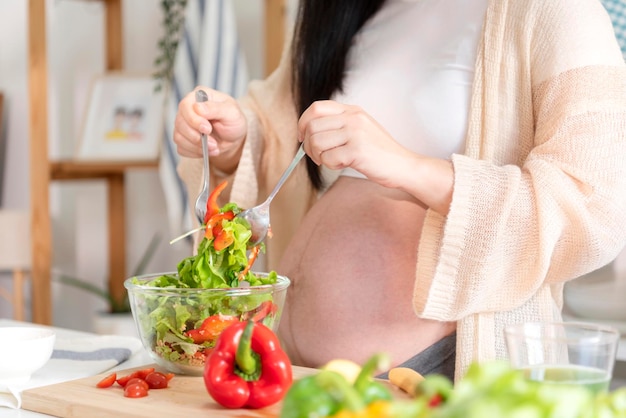
When you’re pregnant, you’re essentially eating for two, which means your health and nutrition become even more important. Everything you eat and drink fuels both your body and your growing baby, making it crucial to understand what a proper pregnancy diet looks like for a healthy baby and a smooth delivery.
To meet the needs of both you and your baby, your food intake should increase to provide enough nutrients for the two of you. The calories you consume are now shared, with one part nourishing your body and the other going toward your baby’s healthy growth and development. This is why doctors encourage expecting mothers to eat nutrient-rich foods, even if morning sickness and changes in taste can sometimes make eating challenging, especially during the first trimester. Despite these hurdles, striving for a balanced, nutritious diet is essential for your well-being and the well-being of your baby.
Each food we eat contains specific nutrients that play an essential role in supporting different parts of the body. Since your calorie needs increase during pregnancy, gaining weight is a normal part of this process. However, it’s important to focus on nutrient-dense foods rather than cutting back on meals to manage weight. Skipping proper nutrition can lead to health complications for both you and your baby, and it may even complicate delivery. To help, here’s a breakdown of some foods that can make your pregnancy journey healthier and more enjoyable:
### Sweet Potatoes
Sweet potatoes are packed with essential nutrients like potassium, vitamin B6, vitamin C, beta-carotene, copper, fiber, and iron. These nutrients strengthen your baby’s bones and support their growth, while also keeping your body healthy. Beta-carotene helps your body produce vitamin A naturally, which is important for your baby’s skin, bone development, and eyesight. The iron and copper content in sweet potatoes also improves your body’s ability to absorb nutrients, promoting balanced health for both of you. Sweet potatoes are easy to prepare—boil them, mash them, or add them to milk for a delicious treat.
### Beans
Beans are a powerhouse of protein, iron, zinc, calcium, folate, and fiber, making them an excellent addition to your diet. These nutrients help prevent complications like premature delivery, low birth weight, and prolonged labor. For non-meat eaters, beans are a fantastic source of iron and protein, which are essential for nourishing both you and your baby. Whether cooked in soups, stews, or salads, they’re versatile and easy to include in your meals.
### Eggs
Eggs are an affordable, versatile, and nutrient-rich option for expecting mothers. They’re packed with protein, iron, choline, and folate, all of which are important for your baby’s brain development and overall growth. Choline, found in the egg yolk, is especially important for preventing brain-related defects. You can enjoy eggs in various forms—boiled, scrambled, fried, or as an omelet—so they’re not likely to get boring.
### Orange Juice
Refreshing and nutrient-packed, orange juice is a great way to start your day. It’s loaded with vitamin C, folate, and potassium, all of which boost your energy, support your baby’s growth, and reduce pregnancy fatigue. Vitamin C also enhances your body’s iron absorption, which is crucial for strong bones and teeth for both you and your baby. Drinking a glass of orange juice daily helps regulate your metabolism and prevents birth defects during early pregnancy.
### Lean Meat
Lean meats, such as pork and beef, are excellent sources of protein, iron, and vitamin B. These nutrients aid in muscle development and increase red blood cell production, reducing the risk of anemia and its complications during delivery. Iron supports your baby’s bone development and helps prevent low birth weight or preterm delivery. Lean meats also promote healthy tissue and brain development, making them a valuable part of your pregnancy diet.
### Salmon
Salmon is rich in omega-3 fatty acids like DHA, which play a crucial role in your baby’s brain and eye development. It can also boost IQ and reduce the risk of neurological issues. This nutrient-dense fish is low in mercury, so it’s considered safe for pregnant women when consumed in moderation. However, it’s always a good idea to consult your doctor about how much you should eat to avoid any potential health risks.
### Oats
Oats are a great breakfast choice, especially during pregnancy. They’re high in fiber, vitamin B6, and protein, which help with baby muscle growth and keep your digestive system healthy. Oats are particularly effective at preventing pregnancy-related constipation and morning sickness, keeping you feeling energized throughout the day.
### Yogurt
Plain yogurt is an excellent source of calcium, which is essential for the bone and teeth health of your growing baby. It also strengthens your own teeth, bones, and muscles. Yogurt is rich in protein, zinc, and vitamin B, which help prevent low birth weight and preterm delivery. Enjoy it on its own, mix it into smoothies, or pair it with fruit for a delicious and nutrient-packed snack.
### Green Leafy Vegetables
Vegetables like spinach, kale, broccoli, and asparagus are brimming with essential nutrients, including iron, calcium, folate, potassium, fiber, and vitamins A, C, and K. These antioxidants and nutrients help support your body’s overall health and boost your baby’s development. Even if you’re not a fan of greens, try finding creative ways to include them in your meals a few times a week for their incredible health benefits.
By including these nutrient-rich foods in your pregnancy diet, you’ll not only support your baby’s development but also stay healthy and energized throughout this special journey. A little planning and mindful eating can go a long way in ensuring a complication-free delivery and a healthy start for your baby.